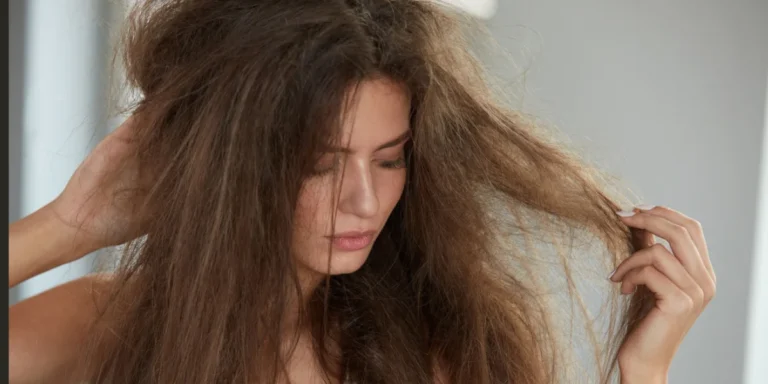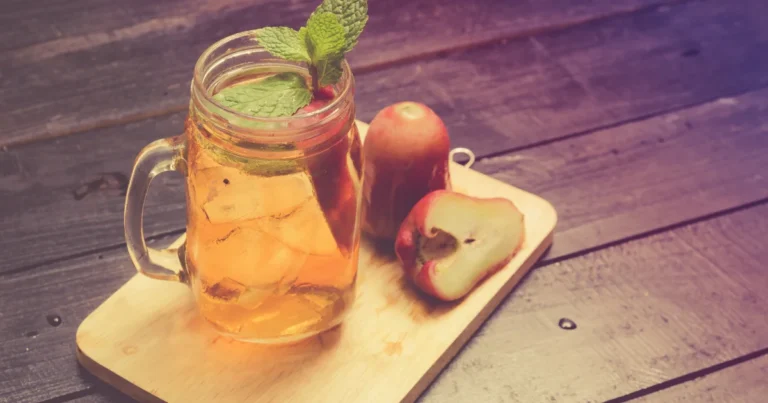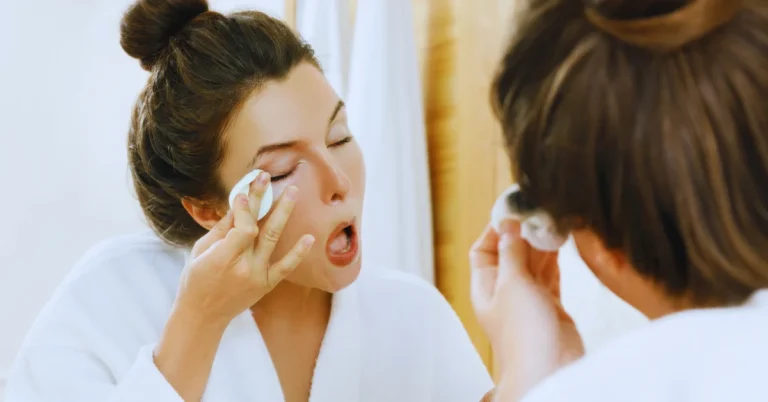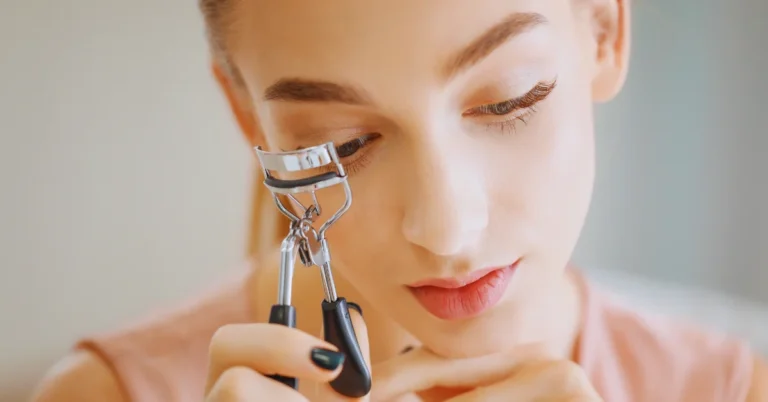Unlocking the Beauty Benefits: Rose Water for Hair Care
Rose water, derived from the petals of the beloved flower, has been cherished for centuries for its beauty-enhancing properties. While it’s often associated with skincare, rose water also offers numerous benefits for hair health. In this comprehensive guide, we’ll explore the wonders of rose water for hair care, from promoting growth to nourishing the scalp and enhancing shine. Discover how this fragrant elixir can transform your hair care routine and unlock luscious locks.
The Power of Rose Water for Hair:
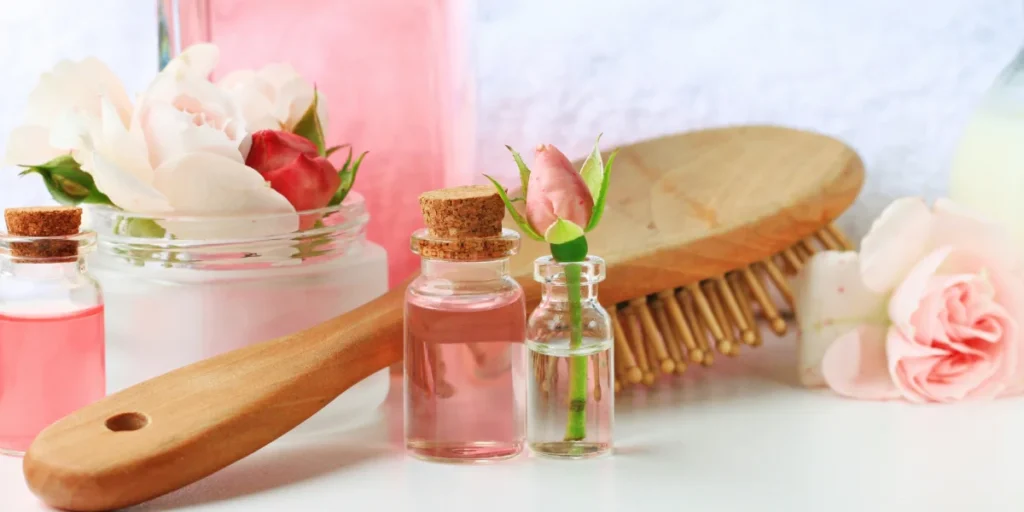
1. Hydration and Moisture Balance:
- Rose water acts as a natural humectant, attracting and retaining moisture in the hair shaft.
- Regular use of rose water helps prevent dryness and brittleness, keeping your hair soft, supple, and hydrated.
- This is particularly beneficial for those with dry or damaged hair, as rose water helps restore moisture balance and improve overall hair texture.
2. Soothing Scalp Irritation:
- The anti-inflammatory properties of rose water make it an excellent remedy for soothing scalp irritation and reducing redness and itching.
- Whether you’re dealing with dandruff, scalp acne, or sensitivity, rose water can provide relief and promote a healthier scalp environment.
- Simply apply rose water directly to the scalp or mix it with your favorite carrier oil for added nourishment and comfort.
3. Stimulating Hair Growth:
- Rose water contains vitamins, minerals, and antioxidants that nourish the hair follicles and promote healthy growth.
- Massaging rose water into the scalp stimulates blood circulation, which in turn encourages hair growth and strengthens the roots.
- Incorporating rose water into your hair care routine can help prevent hair loss and promote thicker, fuller hair over time.
4. Balancing Scalp pH:
- The natural pH of rose water is similar to that of the scalp, making it an ideal tonic for restoring balance and promoting scalp health.
- By maintaining the scalp’s optimal pH level, rose water helps regulate oil production, prevent excess sebum buildup, and reduce the risk of scalp conditions such as dandruff and scalp acne.
- Use rose water as a final rinse after shampooing to rebalance the scalp and leave your hair feeling fresh and revitalized.
- Additionally, incorporating rice water in your hair care routine can provide added benefits such as strengthening the hair shaft, promoting growth, and imparting a natural shine.
5. Enhancing Hair Shine and Manageability:
- Incorporating rose water into your hair care routine can enhance the shine and manageability of your locks.
- Rose water smooths the hair cuticle, preventing frizz and flyaways, and imparting a healthy, glossy sheen.
- Whether you’re styling your hair straight or curly, a spritz of rose water can help tame unruly strands and add a touch of elegance to your look.
Did You Know
The anti-inflammatory effects of rose water can help reduce redness and irritation on the skin and scalp.
source: Journal of Inflammation Research
How to Use:
Rose Water Rinse:
After shampooing and conditioning, pour diluted rose water over your hair as a final rinse. This helps seal the hair cuticle, lock in moisture, and leave your hair smelling divine.
Scalp Massage:
Combine rose water with your favorite carrier oil (such as coconut or jojoba oil) and massage it into the scalp. Leave it on for 30 minutes to an hour before shampooing to soothe the scalp, promote circulation, and nourish the hair follicles.
Leave-in Conditioner:
Mix rose water with aloe vera gel or glycerin and apply it to damp hair as a leave-in conditioner. This lightweight formula hydrates the hair without weighing it down, leaving it soft, silky, and manageable.
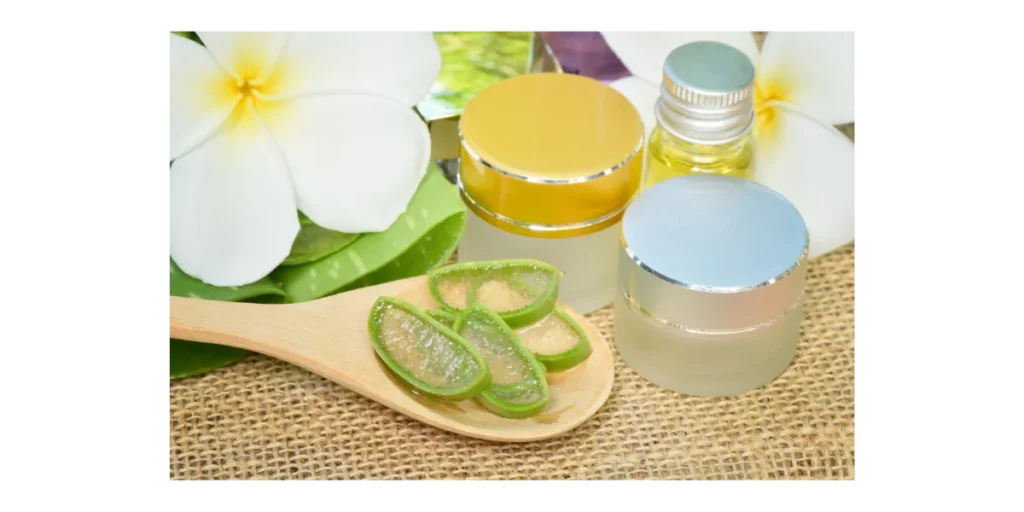
Hair Mist:
Pour rose water into a spray bottle and mist it over your hair throughout the day to refresh and revitalize your locks. This is especially useful for taming frizz and adding a subtle fragrance to your hair.
Hair Type Considerations:
1. For Dry or Damaged Hair:
- If you have dry or damaged hair, incorporating rose water into your hair care routine can work wonders.
- Its hydrating properties help replenish moisture and improve elasticity, restoring vitality to parched strands.
- Ensure to follow up with a nourishing conditioner or hair mask to seal in the moisture and prevent further damage.
2. For Oily Hair:
- While rose water is beneficial for most hair types, those with oily hair may need to use it more sparingly.
- Applying rose water directly to the scalp can help balance oil production and soothe irritation.
- Avoid using heavy formulations or leaving rose water on the scalp for extended periods, as this may exacerbate oiliness.
3. For Fine or Thin Hair:
- Individuals with fine or thin hair can enjoy the lightweight hydration and volumizing effects of rose water.
- Opt for a diluted rose water spray or rinse to avoid weighing down the hair.
- Additionally, be mindful of using too much product, as this can lead to buildup and limpness.
4. For Color-Treated Hair:
- If you have color-treated hair, proceed with caution when using rose water, especially if your hair is light or prone to brassiness.
- While rose water itself is unlikely to cause color fading, certain formulations may contain additives or fragrances that can affect dyed hair.
- Perform a patch test and consult with your stylist before incorporating rose water into your routine.
Precautions for All Hair Types:
1. Choose High-Quality Rose Water:
Opt for pure, high-quality rose water without artificial fragrances or additives to ensure maximum benefits and minimize the risk of irritation.
2. Perform a Patch Test:
Before applying rose water directly to your scalp or hair, perform a patch test on a small area of skin to check for any adverse reactions or sensitivities.
3. Dilute Rose Water:
Always dilute rose water with water or a carrier oil before applying it directly to the scalp or hair to prevent potential irritation or sensitivity reactions.
4. Avoid Overuse:
While rose water is generally safe for all hair types, avoid overusing it, especially if you have oily hair, as this may exacerbate oiliness and lead to buildup.


